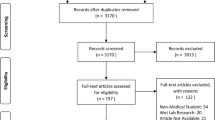Abstract
The importance of health research training in medical education has been well-documented in the literature and is fully recognized at Aga Khan University Medical College (AKUMC). The goals and attributes of undergraduate medical education (UGME) at AKUMC emphasize the ability to become critical thinkers and conduct basic science research. In the UGME curriculum, research is a longitudinal theme throughout the five year program. AKUMC is one of few medical schools to have a designated research-based community health sciences (CHS) course in Year 4. However, to instill this capacity and interest in undergraduate students and to further systemize research training, a four week dedicated Introduction to Research module was recently introduced in Year 2. The aim of this innovative module was to give students the intellectual tools to investigate new problems and evaluate data critically, rather than solve the problem entirely. In keeping with the spiral nature of the curriculum, this module laid the foundation for research skills that are further expanded and utilized in a Year 4 CHS rotation. The Year 2 Research module is a curricular innovation that encourages analytical and creative thinking and promotes a research culture among students. It is a valuable addition to the undergraduate medical curriculum and along with the Year 4 CHS rotation, it serves to enhance knowledge, skills and attitudes that are now necessary for medical graduates.
Similar content being viewed by others
References
Global Forum for Health Research. 10/90 Report on health research 2003–2004. Geneva. 2004 [Accessed 2013 January 14]. Available from: http://www.globalforumhealth.org/media-publications/10-90-Report-2003-2004.
The PLoS Medicine Editors. Improving health by investing in medical education. PLoS Med. 2005;2:e424.
Aslam F, Shakir M, Qayyum MA. Why medical students are crucial to the future of research in South Asia. PLoS Med. 2005; 2:e322.
Aslam F, Waheed A. An audit of the students’ corner of Journal of the Pakistan Medical Association. J Pak Med Assoc. 2005; 55:517–519.
Frishman WH. Student research projects and theses: should they be a requirement for medical school graduation? Heart Dis. 2001; 3:140–144.
Houlden RL, Raja JB, Collier CP, Clark AF, Waugh JM. Medical students’ perceptions of an undergraduate research elective. Med Teach. 2004; 26:659–661.
Brancati FL, Mead LA, Levine DM, Martin D, Margolis S, Klag MJ. Early predictors of career achievement in academic medicine. JAMA. 1992; 267:1372–1376.
Reinders JJ, Kropmans TJ, Cohen-Schotanus J. Extracurricular research experience of medical students and their scientific output after graduation. Med Educ. 2005; 39:237.
Segal S, Lloyd T, Houts PS, Stillman PL, Jungas RL, Greer RB, 3rd. The association between students’ research involvement in medical school and their postgraduate medical activities. Acad Med. 1990; 65:530–533.
Author information
Authors and Affiliations
Corresponding author
Rights and permissions
About this article
Cite this article
Ghias, K., Siddiqui, R. & Ahmed, R. Research as a Pedagogical Approach in Undergraduate Medical Education: An Experience. Med.Sci.Educ. 23 (Suppl 1), 119–121 (2013). https://doi.org/10.1007/BF03341816
Published:
Issue Date:
DOI: https://doi.org/10.1007/BF03341816




